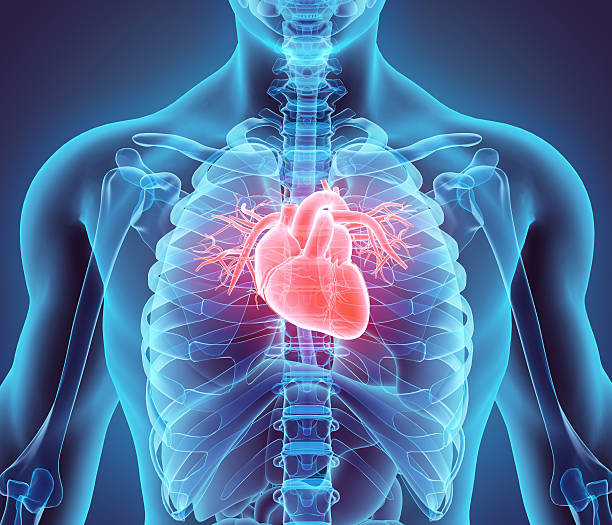Medical First: A pig heart in a human body… No it’s not science fiction!
3D illustration of Heart – Part of Human Organic.
January 28, 2022
On January 7 2022, at the University of Maryland School of Medicine the first transplant of a whole pig heart to human took place. This transplant between species is known as xenotransplantation; the process of transplanting live organs, tissues, or cells from a nonhuman animal into a human. Research shows this idea of cross-species is not new and evidence points as far back as the 17th century. While it is unclear how long the transplanted heart will function this is still a huge milestone for transplants. The success of this transplant can lead to a new way to help those on the organ donor list.
57- year- old David Bennett was the recipient for this transplant. He had advanced heart failure and ventricular fibrillation, which is a type of arrhythmia. Mr. Bennett was deemed ineligible for a human heart transplant due to the concern of him not taking care of it. “The human organ is considered a very precious thing” says Muhammand Mohiuddin, director of the cardiac xenotransplantation program at UMSOM. However, with Mr. Bennett’s consent, the UMSOM team came up with a compromise to give him a genetically modified pig heart created by Revivicor. In 2016 Mohiuddin and colleagues reported that a pig’s heart when transplanted into a baboon’s abdomen could remain healthy for more than 2 years. Since then a transplant of a pig’s heart was able to sustain life inside the chest of the baboon.
However with the xenotransplantation transplant comes serious risk factors, such as rejection. One of the main problems was that the antibodies produced by humans would recognize certain sugars on the surface of pig cells as foreign. Joseph Tector, a transplant surgeon at the University of Miami stated. “You really need to get rid of as much antibody binding as you can upfront to get the graft to survive longer.” So to solve this problem Revivicor knocked out three genes that enable pig cells to synthesize those sugars. In addition, six human genes were modified. Two genes that promote normal blood coagulation and prevent blood vessel damage, two anti- inflammatory genes, and two regulatory proteins. Lastly a gene for a growth hormone receptor was removed to limit the chance that the pig heart will be outgrown once implanted. News reports found six days after surgery, Mr. Bennett was showing no signs of his body rejecting the pig heart.
Sources:
















